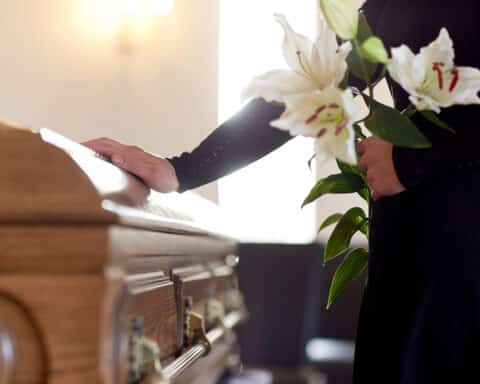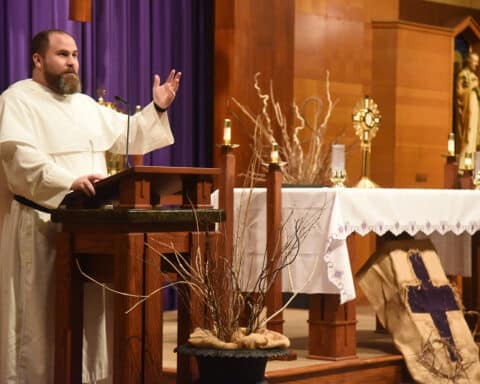Question: We hear in the Gospel where Jesus says, “Let the dead bury their dead” (Mt 8:22). Yet, burying the dead is one of the corporal works of mercy. How do you resolve these things?
— Paul VanHoudt, Erie, Colorado
Answer: “Let the dead bury their dead” is an expression, not something to be taken literally. It is a way of saying, “Let the worldly take care of worldly things, but I am calling you to a more spiritual task rooted in the care of peoples’ souls not merely their bodies.” Hence the Lord is not excluding a corporal work of mercy for all but rather summoning this particular man to prioritize his greater duties rooted in his gifts. Jesus evidently sees great potential in him, since he speaks strongly by saying that even the very pious task of burying one’s own father does not overrule the higher call of leaving everything to go and proclaim the kingdom.
My uncle, Father George Pope, was a Holy Cross missionary and went to Bangladesh in the 1950s as a missionary priest. Travel in those days was more difficult. As a result, he could not fly home to be close to his parents when they were dying or to attend their funerals. He had received a radical call to leave everything to and preach the kingdom.
So, for some (e.g. priests and religious), the call of Jesus is quite literal and absolute. For others, the call is of a more general and situational nature, such that we cannot forever postpone discipleship until our situation is “just right.”
Some wonder why the Lord speaks so harshly and in such a demanding way to a man whose father had just died. But the Greek text can allow for an interpretation that the man’s father has not just died but is getting up in years and may be dying soon. The Greek word, protos, an adverb meaning “firstly,” can refer to something that is first in time or importance. It can also mean “before.” Thus the man may be protesting that Jesus is calling him before his father has died and that he would rather follow after that happens sometime in the indeterminate future.
Even if this theory is set aside, as St. John Chrysostom notes: “He might need, if he went to the funeral, to proceed, after the burial, to make inquiry about the will, and then about the distribution of the inheritance, and all the other things that followed thereupon; and thus waves after waves of things coming in upon him in succession might bear him very far away from the harbor of truth. For this cause, doubtless, the Savior draws him, and fastens him to himself.”
Water in wine at Mass
Question: Why does the priest put water in the wine?
— Jack Martin, Woodbridge, Virginia
Answer: Its first purpose was practical. In the ancient world, it was a common practice for people to dilute their wine with some water. Wines were thicker and stronger, and people drank more wine than today since the water was often foul. To this practical action was attributed a spiritual meaning, wherein the water symbolizes us being immersed into Christ and made members of his body. The prayer, said quietly by the priest as he puts water in the wine, asks that we may come to share in the divinity of Christ, who humbled himself to share in our humanity. Today, most wines require little preparation, so only a very little water is put in the chalice.
Msgr. Charles Pope is the pastor of Holy Comforter-St. Cyprian in Washington, D.C., and writes for the Archdiocese of Washington, D.C., blog at blog.adw.org. He is also the recent author of “Catholic and Curious: Your Questions Answered” (OSV, $18.95). Send questions to msgrpope@osv.com.




